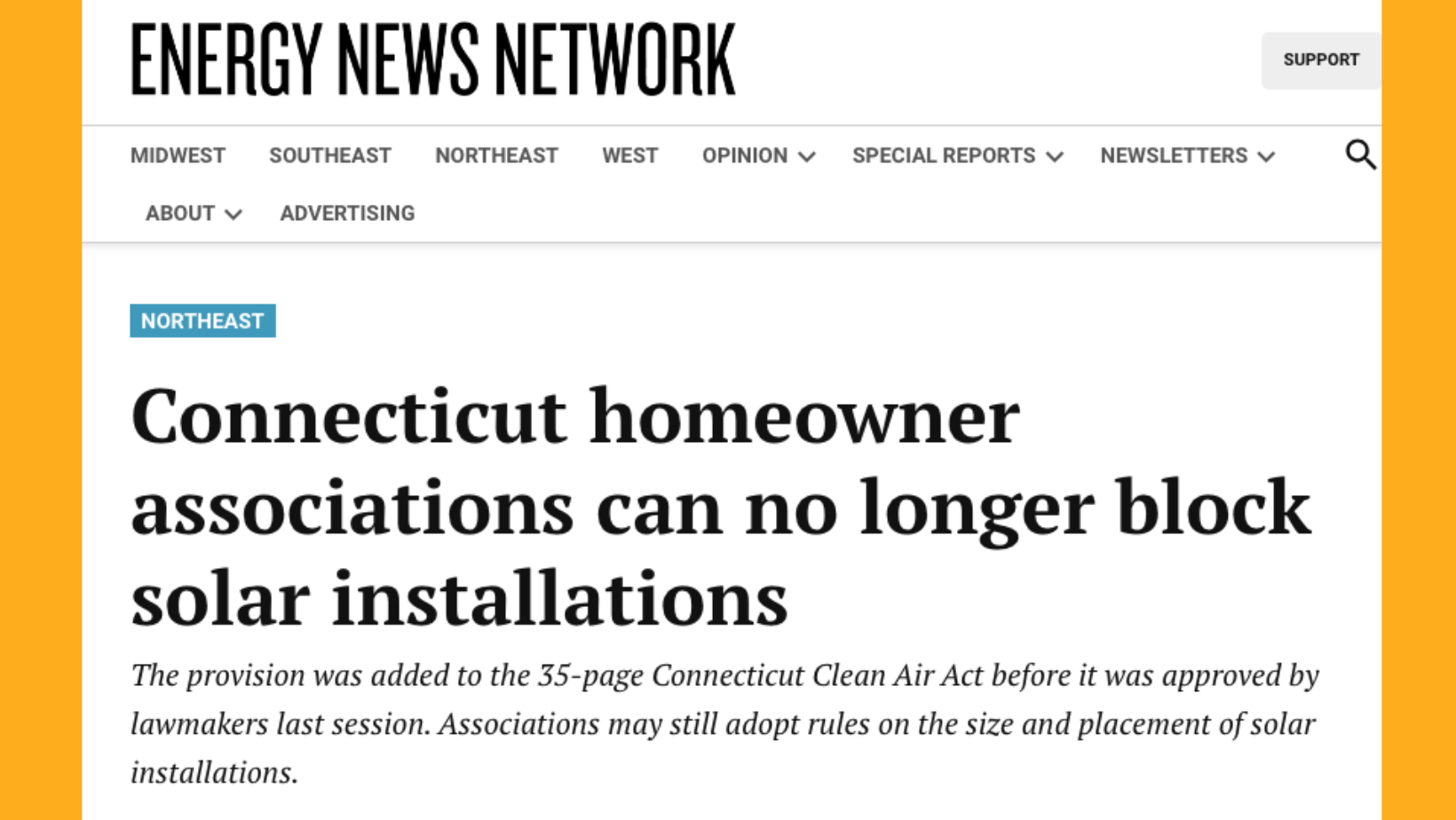The CT Clean Air Act And Its Impact on HOAs
New Opportunities for Solar Energy in Connecticut HOAs
Starting October 1, 2022, Connecticut homeowners that reside within a homeowner's association are now able to get solar on their roof!
Most Homeowner Association’s had written rules within their covenant conditions and restrictions preventing homeowners from installing solar on their roofs. This was quite a hardship, as Connecticut typically has the highest cost of electricity in the continental United States. Furthermore, it is not uncommon for these homes within an HOA community to have been built using electric heat.
Understanding the Limitations and Conditions
Regarding installing solar on your roof, there still are some limitations. If you have a shared roof with another homeowner, the HOA can restrict solar from being installed. Each owner must have an unshared roof to install solar without HOA prevention. This point is written in the legislation; however, more and more HOA boards and executive committees are loosening many, if not all, restrictions, recognizing the hardship of the high cost of electricity for homeowners. This point can also be changed by HOA members voting for a change in the HOA bylaws.
The Financial Impact on HOA Members and Solutions
It is becoming more common that in the 55+ HOA community, there is an aging resident population on fixed incomes. The HOA may not have saved enough funds for road maintenance, new roads, sidewalk repair, common lighting, new roofs, sewage system maintenance, etc. The only remedy is for the HOA board to get the association a loan for hundreds of thousands of dollars or more! Then the HOA assigns a long-term assessment fee to each homeowner! While how this fee is calculated varies between homeowner associations, it is very expensive. If you have a fixed income, it is financially disastrous. This is above and beyond the association fees and mortgage payments they already have.
Additional Measures and Aesthetic Considerations by HOAs
Note that the homeowner’s association still has some measures available to them. These include restricting where the outside cabling might be installed. Any additional HOA restrictions are typically aesthetic in nature. The state of Connecticut and the towns have already created safety and easement standards and regulations for solar roof installations. Should any resident believe their HOA bylaws are still too onerous and unenforceable, they can seek additional measures through board meetings or legal proceedings.
Electric Vehicle Charging Stations: New Rights Under the Clean Air Act
Often, CT HOAs had restrictions on homeowners installing electric vehicle charging stations in their parking spaces. The Connecticut Clean Air Act removes this restriction. The Connecticut Clean Air Act has laid out homeowners responsibilities as well. The homeowner must pay to have the electric vehicle charging station installed. The homeowner must pay to have the electric vehicle charging station maintained and repaired if broken. The homeowner is responsible for paying the electric usage as well. These privileges and responsibilities are assigned to subsequent owners of that EV charging station as well.
Consulting and Advocacy Services by Right Way Energy Group
Right Way Energy Group is a customer advocate for all things solar. Right Way Energy Group provides consulting services for new and already-installed projects. Right Way Energy Group provides these services in both residential and commercial markets.
Should you, your HOA, or company be interested in learning about solar and how it may impact your home or business, please contact Right Way Energy Group at 203-788-4906.
